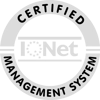The logistics network of a company is the cornerstone of its operational efficiency. In a globalized world, where goods and services are moved across countries and continents, optimizing these networks is essential for business success. They not only enable a smooth flow of goods but also lay the foundation for a sustainable, cost-efficient, and customer-focused supply chain.
In this blog post, we will discuss the key aspects of an effective logistics network, from the importance of strategic planning and implementation to the role of transportation and supplier networks. We will explore how well-thought-out logistics networks meet the challenges of the modern supply chain and support companies in optimizing their processes and enhancing their competitiveness.

What exactly is a logistics network?
A logistics network refers to the entirety of all processes, actors, resources, and technologies involved in the movement and storage of goods from origin to the end customer. It represents a complex, dynamic structure aimed at maximizing the efficiency and effectiveness of the supply chain. The main components of a logistics network include:
- Suppliers and producers: They are the source of raw materials and products. An efficient network starts with strategic selection and collaboration with suppliers to ensure a smooth supply.
- Manufacturing and production: This is where raw materials are transformed into finished products. Manufacturing facilities can be part of the network and must be optimally equipped in terms of location, capacity, and technology.
- Storage and distribution centers: These facilities play a central role in the interim storage, sorting, and preparation of products for delivery. A well-organized warehouse and distribution network ensures quick and efficient distribution of goods.
- Transport: This aspect encompasses all means and methods to move products from one place to another. This can include road, rail, air, or sea transport. A key element is choosing the right mode of transport to optimize costs and minimize delivery times.
- Information technology: Modern logistics networks heavily rely on IT systems. Tools such as Warehouse Management Systems (WMS), Transportation Management Systems (TMS), and Supply Chain Management software are crucial for keeping track and efficiently managing processes.
- Customers: They are the ultimate goal of every logistics network. Customer satisfaction heavily depends on the efficiency and reliability of the logistics network.
The aim of every logistics network is to find an optimal balance between cost, speed, reliability, and flexibility. This requires continuous analysis, planning, and adjustment to respond to changes in demand, market conditions, or supply situations.

Why is an efficient logistics network so important?
In today’s globalized world, where markets are increasingly interconnected and customer expectations are continually rising, the efficiency of the logistics network is crucial for a company’s success. Here are some key aspects that highlight the importance of an efficient logistics network:
- Cost efficiency: A well-structured logistics network can significantly contribute to cost reduction. By optimizing transportation routes, warehousing, and inventory management, companies can minimize unnecessary expenses.
- Customer satisfaction: In a world where fast deliveries and precise delivery times are expected, a smooth logistics network is essential for satisfying and retaining customers.
- Competitive advantage: Companies with an efficient logistics network can respond faster to market requirements and thus gain an edge over the competition.
- Sustainability: An efficient logistics network allows for better resource utilization and reduces the ecological footprint, which is becoming increasingly important in times of growing environmental awareness.
- Adaptability and resilience: In a rapidly changing business world, companies must be able to adapt to disruptions and changes. A robust logistics network helps to flexibly respond to fluctuations in demand, supply shortages, or other challenges.
- Transparency and control: Modern logistics networks, supported by advanced IT systems, offer businesses a better overview and control over their supply chain. This is crucial for the effective planning and management of business processes.
- International expansion: For companies that operate or want to expand in global markets, an efficient logistics network is indispensable for delivering products timely and cost-effectively to different international locations.
In short, an efficient logistics network is not just a backbone for smooth operations within a company but also a critical factor for its long-term success and growth.

How can companies optimize their logistics networks?
To build and maintain efficient transportation, supplier, and supply chain networks, companies must employ various strategies and practices. Here are some key approaches to optimization:
- Data analysis and technology use: Modern technologies such as big data analytics, artificial intelligence, and machine learning enable the analysis and utilization of large data sets to optimize logistics processes. These technologies help identify trends, improve demand forecasting, and make the supply chain more efficient.
- Integration of supply chain management systems: Utilizing advanced supply chain management systems allows for better integration and coordination among the different links in the supply chain. This leads to increased transparency, reduced errors, and improved information flow. Our in-house supply chain management software D-SCS is an exemplary case in point.
- Strategic location selection: Choosing the right locations for warehouses and distribution centers can significantly enhance the efficiency of the logistics network. Locations should be selected based on market proximity, transportation costs, supplier relationships, and other relevant factors.
- Sustainable and agile practices: Companies should adopt flexible and sustainable logistics practices to quickly adapt to market changes. This can be achieved by creating an agile transportation network, using eco-friendly transportation methods, and implementing sustainable packaging solutions.
- Partnerships and collaborations: Collaborating with logistics partners, suppliers, and other stakeholders can help create synergies and boost the efficiency of the logistics network. This includes forming partnerships with 3PL (Third-Party Logistics) providers to efficiently utilize specialized logistics services.
- Continuous process improvement: Companies should constantly monitor their logistics processes and look for optimization opportunities. This can be done through regular performance reviews, benchmarking against industry standards, and the implementation of lean management principles.
By implementing these steps, companies can not only optimize their logistics network but also enhance their competitiveness and secure long-term business success.

Our DEUFOL conclusion on logistics networks
In a constantly changing world where the dynamics of global markets incessantly progress, optimizing logistics networks is more than just an option—it’s a necessity for companies that want to remain competitive in their industry. An efficient and well-thought-out logistics network is crucial for a company’s ability to respond to demand changes, minimize costs, and ensure customer satisfaction. Through innovative use of advanced technologies and integration of supply chain management systems, companies can optimize their transportation and supplier networks to become more agile and resilient in the logistics industry. Additionally, continuous analysis and adjustment of logistics processes allow for ongoing improvement and innovation.
As an experienced player in the logistics industry, DEUFOL understands the importance of a strategically well-positioned logistics network and offers its expertise to assist companies in optimizing their logistics strategies. With our comprehensive knowledge, an innovative platform for logistics and supply chain solutions, and our global presence, DEUFOL is ideally positioned to address individual needs and provide customized solutions. So, if you’re looking for a partner to support you in optimizing your logistics network, DEUFOL offers the necessary expertise and experience to efficiently achieve your logistics goals and strengthen your competitive position.
Contact us now for a personal consultation
If you’re looking to enhance your logistics strategy, the DEUFOL team is your ideal contact. Reach out to us for a complimentary consultation, where we can discuss your specific requirements and challenges. Together, we’ll explore ways to optimize your logistics network and boost your operational efficiency.
Whether it concerns a transportation network, supplier network, or a comprehensive supply chain network – we understand your challenges in detail. Our team looks forward to developing innovative and tailored solutions with you, meeting your specific needs.




